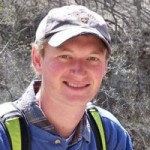 In June, Rocky Mountain Flycasters (RMF), the Fort Collins area Chapter of TU, began discussing the restoration process in the areas burned by both the High Park and Hewlett Gulch fires.Those two fires burned close to 100,000 acres of forest in the Poudre and Big Thompson watersheds. RMF was gravely concerned what impacts the fires would have on the watersheds.
Using recent Colorado and Western US fires as examples, the chapter knew that restoration costs of those burned areas couldn't be done solely through agency response. The US Forest Service, National Resource Conservation Service, Colorado Parks and Wildlife, Colorado State Forest Service and Larimer County are all first rate organizations, but all these agencies combined lack the resources necessary to address the ecological damage caused this year by our two local fires, Colorado's other wildlifres, and the numerous fires burning throughout the Western US.
In June, Rocky Mountain Flycasters (RMF), the Fort Collins area Chapter of TU, began discussing the restoration process in the areas burned by both the High Park and Hewlett Gulch fires.Those two fires burned close to 100,000 acres of forest in the Poudre and Big Thompson watersheds. RMF was gravely concerned what impacts the fires would have on the watersheds.
Using recent Colorado and Western US fires as examples, the chapter knew that restoration costs of those burned areas couldn't be done solely through agency response. The US Forest Service, National Resource Conservation Service, Colorado Parks and Wildlife, Colorado State Forest Service and Larimer County are all first rate organizations, but all these agencies combined lack the resources necessary to address the ecological damage caused this year by our two local fires, Colorado's other wildlifres, and the numerous fires burning throughout the Western US.
Rocky Mountain Flycasters has teamed with, in a leadership capacity, approximately 40 current member, agency or stakeholder organizations throughout Northern Colorado to collectively fund, organize and support restoration needs for the High Park and Hewlett Gulch fire areas through the High Park Restoration Committee (HPRC).
 Restoration funds collected for the benefit and use by the coalition will be deposited with the Community Foundation of Northern Colorado. Project proposals will reviewed and approved by a HPRC Project Review Committee and funding will only be released to those projects that are approved by the committee.
Restoration funds collected for the benefit and use by the coalition will be deposited with the Community Foundation of Northern Colorado. Project proposals will reviewed and approved by a HPRC Project Review Committee and funding will only be released to those projects that are approved by the committee.
To get "boots on the ground" and working on restorative projects, trained project leaders will be required to manage the on-site work. Project leaders will be volunteers and can receive training certification through programs provided by Wildlands Restoration Volunteers.
Details of volunteer and cooperative HPRC projects will be posted in the Rocky Mountain Flycasters newsletter and on the RMF website.
This is a tremendous opportunity for all anglers and those who support angling to 'give back' to the community and more importantly to give back to the rivers. Nothing can be done to eliminate the devastating effects fires have caused to the watershed, but together we can minimize the time it takes for the watershed to begin to recover and regain a sense of normalcy.
For more information about volunteering or donating to the HPRC, please visit the RMF website at http://www.rockymtnflycasters.org or contact Dick Jefferies, President of the Rocky Mountain Flycasters chapter, at djefferies@q.com.












